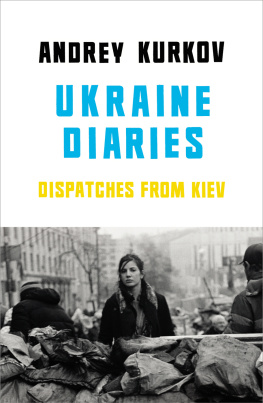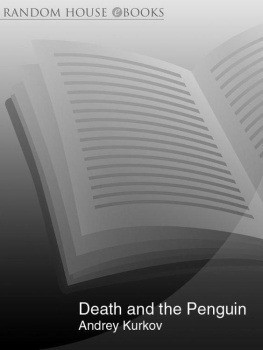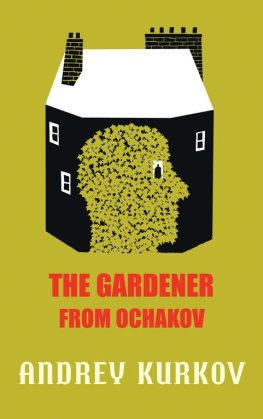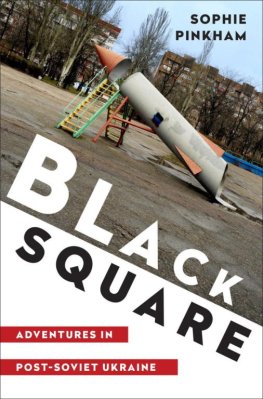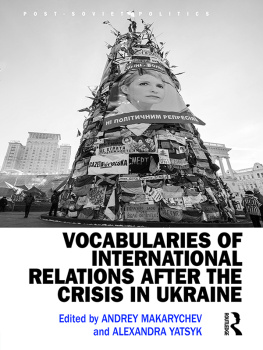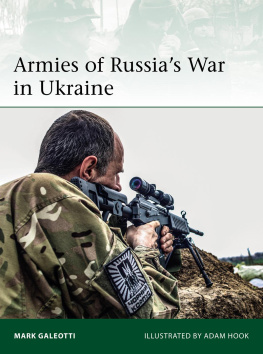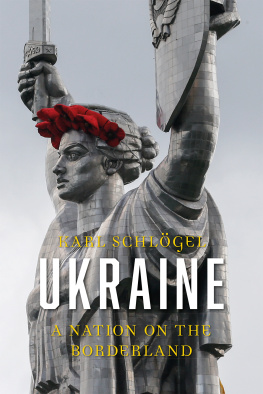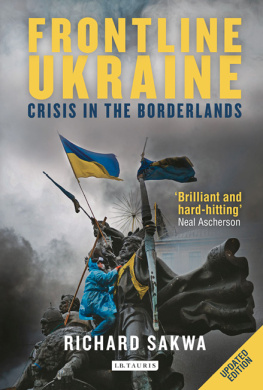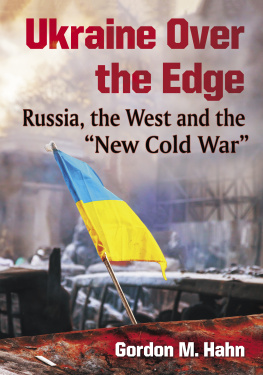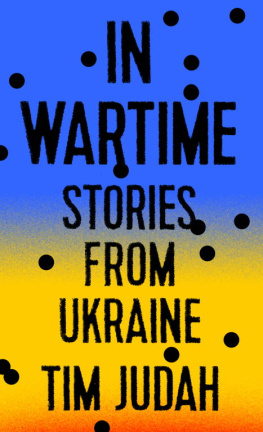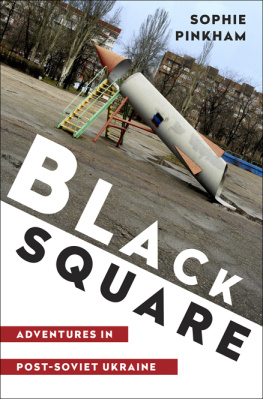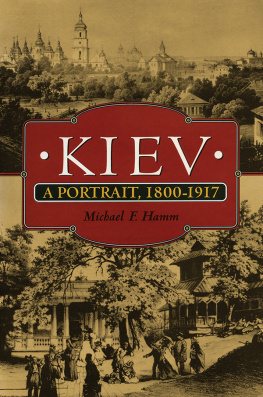Contents
Also by Andrey Kurkov
Death and the Penguin
The Case of the Generals Thumb
Penguin Lost
A Matter of Death and Life
The Presidents Last Love
The Good Angel of Death
The Milkman in the Night
The Gardener from Ochakov

This ebook is copyright material and must not be copied, reproduced, transferred, distributed, leased, licensed or publicly performed or used in any way except as specifically permitted in writing by the publishers, as allowed under the terms and conditions under which it was purchased or as strictly permitted by applicable copyright law. Any unauthorized distribution or use of this text may be a direct infringement of the authors and publishers rights and those responsible may be liable in law accordingly.
Version 1.0
Epub ISBN 9781473520479
www.randomhouse.co.uk
Published by Harvill Secker 2014
2 4 6 8 10 9 7 5 3 1
Copyright Andrey Kurkov and Haymon Verlag, Innsbruck-Wien 2014
English translation copyright Sam Taylor 2014
Afterword copyright Andrey Kurkov 2014
Afterword English translation copyright Amanda Love Darragh 2014
Diaries translated from the French edition, Journal de Maidan ditions Liana Levi, Paris, 2014, translated by Paul Lesquesne
Andrey Kurkov has asserted his right under the Copyright, Designs and Patents Act 1988 to be identified as the author of this work
First published with the title Ukrainisches Tagebuch in 2014 by Haymon Verlag, Innsbruck-Wien
First published in Great Britain in 2014 by
HARVILL SECKER
20 Vauxhall Bridge Road
London SW1V 2SA
A Penguin Random House Company

www.vintage-books.co.uk
www.penguinrandomhouse.com
A CIP catalogue record for this book is available from the British Library
ISBN 9781846559471 (paperback)
Publishers Note
Ukraine became independent from the USSR in August 1991. Reports of vote-rigging in the 2004 presidential election, allegedly won by Viktor Yanukovych, led to the Orange Revolution, and Viktor Yushchenko became president. Yanukovych was, however, victorious in the 2010 elections. Owing to a lack of growth mired by corruption in Ukraine, Yanukovych sought economic ties with both Russia and the European Union.
On 21 November 2013, the Ukrainian government suspended negotiations on the EU Association Agreement. This agreement called for closer trade links, political and economic reform, and the release of ex-Prime Minister Yulia Tymoshenko, who was imprisoned in 2011 on charges believed to be politically biased. Russia opposed the agreement, and threatened to impose harsh trade restrictions on Ukraine and to increase gas prices if it were signed.
Kiev, central and western Ukraine are more pro-European; the east is predominantly pro-Russian. The south is a mix of pro-European and pro-Russian. The Maidan protests, described in these pages, involve a diverse group of anti-government protesters; political parties of the opposition; and later self-defence groups set up to protect protesters from pro-government mercenaries. The main opposition parties are Batkivshchyna (centre-right; Tymoshenkos party, led by Arseniy Yatsenyuk); UDAR (centrist, led by Vitaliy Klichko); Svoboda (right-wing, led by Oleh Tyahnybok); and groups which emerged during the revolution, such as Pravy Sektor (far-right nationalist, led by Dmytro Yarosh).
Yanukovychs party, the Party of Regions the ruling party as these diaries begin is made up of various groups with different ideological and political views, ranging from centrist to pro-Russian.
Preface
When nothing in particular happens in the life of a man and his country, the man might believe his existence to be stable and eternal. In fact, that life where time is measured in career changes, in the purchases of new houses or cars, in family gatherings, in weddings and divorces truly is stable. The man who lives in one of the worlds hot spots, or who simply lives next to an active volcano, has a different view of time. The worth of each day, each hour experienced, proves infinitely greater than that of a peaceful week. When you live next to a volcano, real or metaphorical, the day is filled with so many events that it proves physically impossible to remember them all. These events inevitably end up in the history books, sometimes comprising only a few lines, sometimes one or two pages.
I now understand why, when I was at school, I much preferred reading the private diaries of writers or politicians who had witnessed history to reading actual history books. I remember the diary of the great Russian poet Alexander Blok, covering the years 191718. I remember Franz Kafkas diary, and I remember in particular the diary which I read recently in its complete version of the famous Ukrainian film-maker Alexander Dovzhenko, in which he would sing the praises of Stalin or revile the Jews and the Ukrainians, just in case he was arrested and the KGB read his notebooks, so he would be able to point out these passages as proof of his loyalty to the Soviet regime.
I have kept diaries for more than thirty years. Several times, my Ukrainian editors have asked to publish them, even if only fragments of them, but until now I have never been able to force myself to extract from these private writings anything I was ready to share with readers.
And then, having been led on more than one occasion into the path of a whirlwind of history, I found myself the witness to the dramatic events that arose in November 2013 in Ukraine, events of which we have not yet seen the end. I do not know what will happen next, or what lies in store for me and my family. I only hope that everything will be all right.
I am not leaving. I am not shying away from reality. I live each day in the very centre of reality. All five of us myself, my wife Elizabeth, and our children Gabriela, Theo and Anton continue to live in the same apartment, in the heart of Kiev, five hundred yards from the Maidan Nezalezhnosti, Ukraines Independence Square. From our balcony we have seen smoke rise from blazing barricades, we have heard the explosions of grenades and gunshots. Life goes on, throughout all of this; not once has it stopped. And I have recorded this life almost every day, so that I can attempt, now, to recount it to you in detail. A life in times of revolution, a life spent waiting for war. A war that, as I write these words, seems terribly close, closer than ever.
Thursday 21 November 2013
Tonight, around midnight, a meteorite fell on Sevastopol. Why there in particular? Pure chance, probably. But still, that it should choose to land on the most Russian city in Ukraine, whose picturesque bays are home to Russias Black Sea Fleet!
I would not have paid any attention to this nocturnal event, had there not appeared today a declaration by the prime minister, Mykola Azarov, announcing the suspension of preparations to sign the Association Agreement with the European Union. In one of my novels I described a secret factory, hidden away in the Ural Mountains, which produced artificial meteorites. The dream of the Soviet militarys high command: bombarding the United States with artificial meteorites, while making people believe they were real ones. So I wondered if this meteorite was really a natural event, or if it had not been a way of proclaiming to the most Russian city in Ukraine that negotiations between Viktor Yanukovych and Vladimir Putin over the renunciation of our countrys Association Agreement with Europe had ended successfully (for Putin).
Next page
